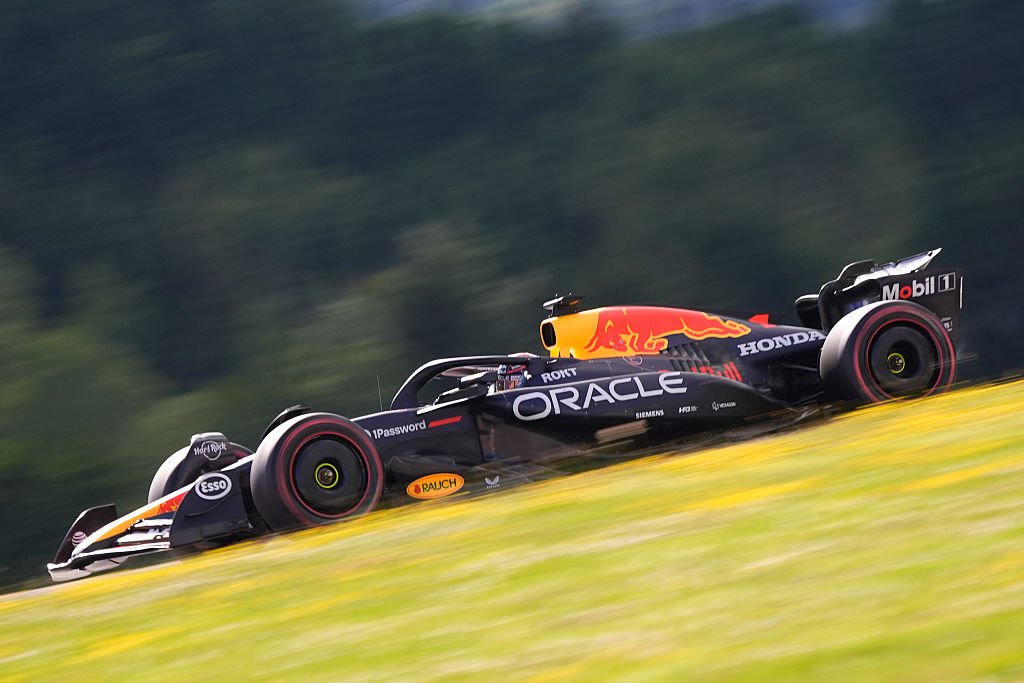Max Verstappen’s Challenges Ahead of the Austrian Grand Prix
Max Verstappen, a prominent figure in the world of Formula 1 racing, has recently expressed his concerns regarding the upcoming Austrian Grand Prix. His remarks follow a disappointing qualifying performance where he secured the seventh position on the grid. Red Bull Racing, the team Verstappen represents, entered this race with high hopes, especially considering it is their home circuit. The team had introduced upgrades to their vehicle, aiming to enhance performance and competitiveness. However, Verstappen’s experience during practice and qualifying revealed significant challenges that raised doubts about his team’s ability to contend for a top position in the race.
Performance Struggles During Practice
Leading up to the Austrian Grand Prix, Verstappen and his team had been striving to optimize their performance. Throughout the practice sessions, it became apparent that Red Bull was not at the forefront, particularly when compared to competitors like McLaren. Although Verstappen managed to stay within a reasonable distance from the front-runners, it was clear that something was amiss. The car’s handling was inconsistent, causing frustration and concern for the driver.
As practice unfolded, Verstappen noted that the car’s performance did not match expectations. He expressed that the long runs during practice were subpar, indicating that the team still had work to do before qualifying. Despite a seemingly improved performance in the final practice session (FP3), he acknowledged that the car still felt off. The combination of varying grip levels and the car’s unpredictable behavior led to a difficult qualifying session.
Qualifying Woes
When the time came for qualifying, Verstappen faced a series of challenges that ultimately hindered his performance. He described the experience as a struggle, with every corner presenting difficulties. The car lacked the balance needed for optimal performance, oscillating between understeer and oversteer. This inconsistency made it challenging for Verstappen to put together a clean lap, resulting in his disappointing seventh-place starting position.
Verstappen’s frustration was palpable as he reflected on the qualifying session. He remarked that every lap felt different, making it difficult to find a rhythm. The driver indicated that the issues were not solely due to the upgrades Red Bull had implemented. Instead, he emphasized that the team had taken a step back in performance, which was unexpected, especially considering the progress they had made during FP3.
The Impact of Track Conditions
One of the key factors contributing to Verstappen’s struggles was the change in track conditions. As the temperature of the track rose and wind conditions shifted, the car’s performance deteriorated. Verstappen pointed out that these environmental factors played a significant role in the car’s handling, leading to a complete breakdown in performance compared to previous sessions.
The parc ferme regulations, which limit the ability to make adjustments to the car’s setup between qualifying and the race, further compounded Verstappen’s challenges. With only minor changes made to the car’s setup, the driver felt trapped in a situation where he could not rectify the issues that had emerged during qualifying.
Low Expectations for Race Day
Looking ahead to race day, Verstappen’s expectations were notably tempered. He stated that he did not anticipate being able to compete at the front of the pack, particularly under the hotter conditions expected during the race. Historically, Verstappen’s performance during race day has not surpassed his qualifying efforts this season, adding to his concerns about the upcoming event.
Verstappen’s candid acknowledgment of his low expectations reflects a realistic assessment of the team’s current situation. He recognized that the performance gap observed during qualifying would likely carry over into the race, making it challenging to improve his position significantly.
Analyzing the Situation
In light of the challenges faced, Verstappen and his team are likely to engage in in-depth analysis to understand the root causes of their performance issues. Identifying the discrepancies between practice and qualifying will be crucial for making the necessary adjustments, not only for the Austrian Grand Prix but for future races as well.
Verstappen’s comments indicate a strong commitment to addressing these problems head-on. The team will need to scrutinize various aspects of the car’s setup, tire performance, and overall strategy to enhance their competitiveness. By analyzing data collected from practice and qualifying sessions, Red Bull Racing hopes to identify patterns that contributed to the car’s underwhelming performance.
Looking Forward
As the race day approaches, Verstappen remains focused on making the most out of a challenging situation. Despite the setbacks, he is determined to deliver a respectable performance and salvage as many points as possible. The competitive nature of Formula 1 means that anything can happen during the race, and Verstappen’s experience on the track could play a pivotal role in navigating the challenges ahead.
The team’s ability to adapt and respond to unforeseen circumstances will be critical. With a strong focus on teamwork and communication, Red Bull Racing aims to find solutions that can enhance their performance and restore confidence in their car.
Conclusion
Max Verstappen’s journey leading up to the Austrian Grand Prix has been fraught with challenges and uncertainty. His candid reflections on the car’s performance during practice and qualifying underscore the complexities of racing at the highest level. While expectations may be low heading into the race, the determination to analyze and improve remains strong. As the motorsport community looks on, Verstappen’s resilience and skill will be put to the test in what promises to be a gripping race day at the Austrian Grand Prix.
